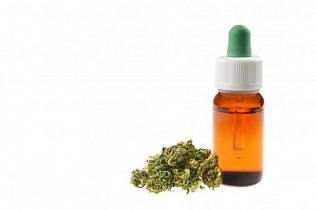Can CBD Oil Cause a High?
It seems like everyone wants to jump on the weed wagon, either for medical or recreational marijuana, or to try and get a fix on what CBD oil is all about. There is much banter going on these days about CBD -- folks debating pros and cons, safe or not, etc. Stores hawking CBD products are springing up all over, and regardless of the lack of proof of effectiveness, people are buying. Most are looking for relief from pain, insomnia, or anxiety, but if one is looking for a heightened sensory experience, they will be quite disappointed; it will not provide them with that kind of relief.
Cannabidiol (CBD) and delta 9-tetrahydrocannabinol (THC) are two ofthe over 60 cannabinoid compounds found in the cannabis sativa plant. There are over 400 different compounds in all. THC is the one with which most people are familiar as the psychoactive ingredient in marijuana, but CBD is now becoming a household world, and as such, needs to be understood before it is taken.
You may or may not know that hemp and marijuana are the same plant,but they differ in the percentage of THC they contain. If the plant has 0.3 % or less of THC, it is considered hemp. If it contains greater than 0.3 % of THC it is called marijuana. Accordingly, in places where hemp is legally grown,it is heavily regulated, including testing leaves to determine the amount of THC they contain.
The body’s reaction to the substance depends on the form taken. The body has its own cannabinoid receptors all over the body,designated CB1 and CB2, inwhat is known as theEndocannabinoid System, (ECS). Many of the CB1 receptors are in the brain, and these are the ones to which THC attachesto causemind alteration.When THC is heated, such as in smoking or baking, the heat activates itand it goes from the lungs or gut to the bloodstream,and then to the brain, where it stimulates receptors in the areas that control functions such as coordination, memory, mood, thinking, pain, and appetite.This stimulation causes the chemicals serotonin and dopamine to be released, producing the high. CB2 receptors are found throughout the body, affecting the cardiovascular and immune systems, the latter affecting inflammation within the body.
It is the actions of phytocannabinoids from the cannabis plant on the body’s ECS thatis causing so much excitement within the medical community. One theory is that some illnesses associated with pain are caused by an endocannabinoid deficiency. If this is true, then it would make sense that the addition of cannabinoids to the body could help. One medication, Epidiolex, derived from a purified form of CBD oil, was approved by the FDAin 2018 for the treatment of two severe and rare forms of epilepsy, but only after extensive research and development to ensure the drug was safe and effective. This must be done for every new CBD oil product before it can be approved, for the health and safety of consumers, no matter how long it takes. In the meantime, caution must be used when purchasing these products, as they are not controlled. They may contain more, or less, CBD or even contain higher levels of THC. No one is testing over-the-counter products for quality or safety. Consumers just have to “trust” that they are getting what the label says.
The potential of CBD oil for treating illness is certainly fascinating and exciting, and research is being done on many fronts, but we must be patient. Good things come to those who wait.
Comments
There are 0 comments on this post













